
Meknes: The Imperial Jewel of Morocco
Meknes, one of Morocco's four imperial cities, is a blend of historical grandeur and vibrant culture. Known for its rich history and stunning architecture, Meknes offers a unique experience for travelers seeking to explore Morocco's heritage. The city's skyline is dominated by grand gates, ancient palaces, and intricate mosques, all set against the backdrop of modern Moroccan life. Visitors can walk through the ancient medina, a UNESCO World Heritage site, where winding streets are lined with bustling souks, offering everything from spices to hand-crafted goods. The Bab Mansour gate, an iconic landmark, stands as a testament to the city's historical significance. Meknes also boasts the impressive Royal Stables and the Heri es-Souani granaries, showcasing the city's past as a center of power and wealth. Beyond its historical sites, Meknes is surrounded by lush vineyards and olive groves, making it an excellent base for exploring the region's natural beauty. The nearby Roman ruins of Volubilis provide a fascinating day trip for those interested in ancient history. With its blend of old and new, Meknes is a must-visit destination for anyone looking to immerse themselves in the rich tapestry of Moroccan culture.
Local tips in Meknes
- Visit early in the morning to avoid the crowds and experience the city's sights in a more relaxed atmosphere.
- Wear comfortable shoes as exploring the medina and historical sites involves a lot of walking on uneven surfaces.
- Hire a local guide to gain deeper insights into Meknes' history and hidden gems.
- Try the local cuisine, especially the traditional tagines and pastilla, at a local restaurant for an authentic culinary experience.
- Carry cash, as many small shops and vendors in the medina do not accept credit cards.
Meknes: The Imperial Jewel of Morocco
Meknes, one of Morocco's four imperial cities, is a blend of historical grandeur and vibrant culture. Known for its rich history and stunning architecture, Meknes offers a unique experience for travelers seeking to explore Morocco's heritage. The city's skyline is dominated by grand gates, ancient palaces, and intricate mosques, all set against the backdrop of modern Moroccan life. Visitors can walk through the ancient medina, a UNESCO World Heritage site, where winding streets are lined with bustling souks, offering everything from spices to hand-crafted goods. The Bab Mansour gate, an iconic landmark, stands as a testament to the city's historical significance. Meknes also boasts the impressive Royal Stables and the Heri es-Souani granaries, showcasing the city's past as a center of power and wealth. Beyond its historical sites, Meknes is surrounded by lush vineyards and olive groves, making it an excellent base for exploring the region's natural beauty. The nearby Roman ruins of Volubilis provide a fascinating day trip for those interested in ancient history. With its blend of old and new, Meknes is a must-visit destination for anyone looking to immerse themselves in the rich tapestry of Moroccan culture.
When is the best time to go to Meknes?
Iconic landmarks you can’t miss
Lahdim Square
Discover the vibrant culture and rich history at Lahdim Square, the heart of Meknès, Morocco, where tradition meets lively local life.
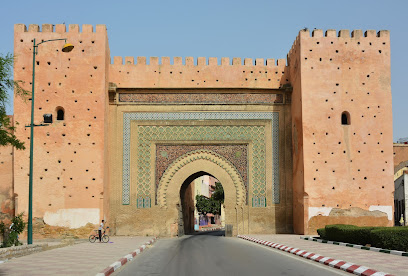
Bassin Souani صهريج السواني
Explore the enchanting Bassin Souani, a historic water basin in Meknes, surrounded by lush gardens and rich Moroccan heritage.
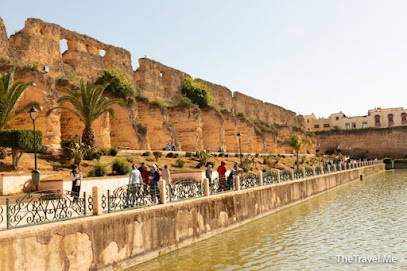
Meknès Train Station
Explore Morocco from Meknès Train Station, your starting point for adventures in this historic city and beyond.
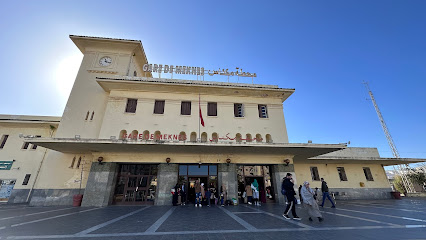
Mausoleum of Moulay Ismail
Discover the Mausoleum of Moulay Ismail in Meknes, a stunning historical landmark showcasing exquisite Moroccan architecture and royal heritage.
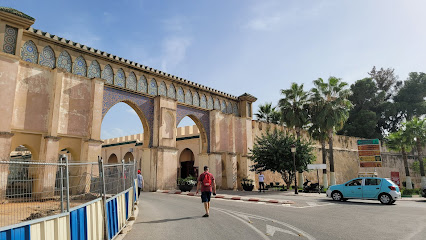
Royal Stables
Explore the Royal Stables of Meknes, a magnificent monument showcasing Morocco's equestrian heritage and royal history in an architectural masterpiece.
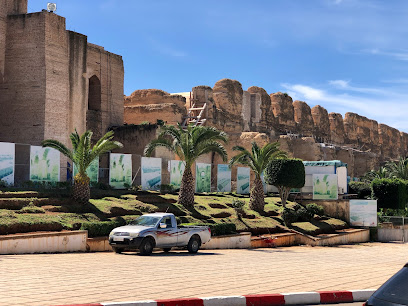
Khemis Gate
Explore Khemis Gate in Meknes: A stunning historical landmark showcasing rich Moroccan architecture and vibrant local life.
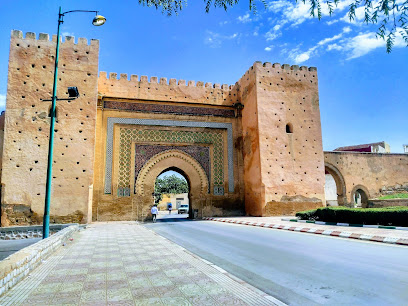
Madrasa Bou Inania
Discover the architectural brilliance of Madrasa Bou Inania in Meknes, a historical landmark showcasing Morocco's rich cultural heritage and craftsmanship.
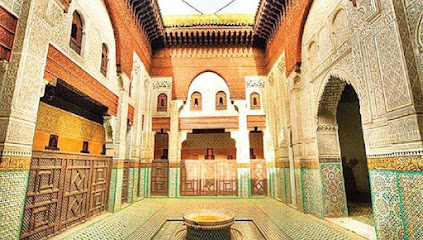
المحطة الطرقية مكناس
Explore the vibrant landscapes and rich culture of Morocco through personalized travel experiences at Meknes' top travel agency.
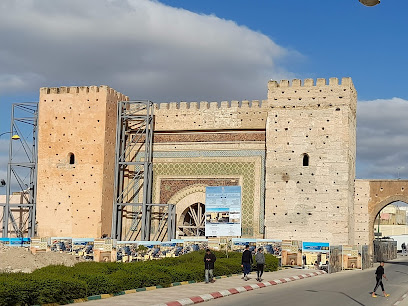
Al-Hoboul Park
Explore the lush landscapes and family-friendly zoo at Al-Hoboul Park, a beautiful escape in the heart of Meknes, Morocco.
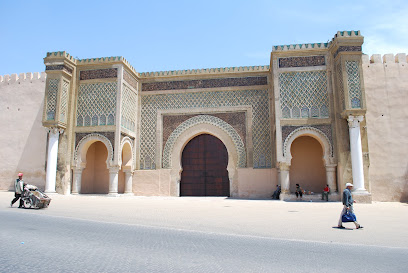
Bab Berdieyinne
Explore Bab Berdieyinne, a historical gateway in Meknes, showcasing the beauty of Moroccan architecture and the vibrant culture of the Medina.
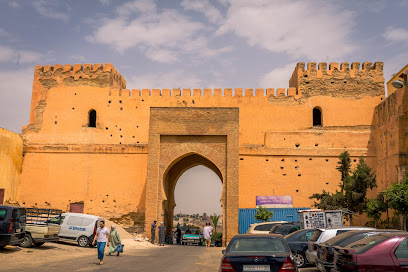
Borj Belkari / برج بلقاري
Explore the historic Borj Belkari in Meknes, a stunning fortress showcasing Morocco's rich architectural heritage and breathtaking views.
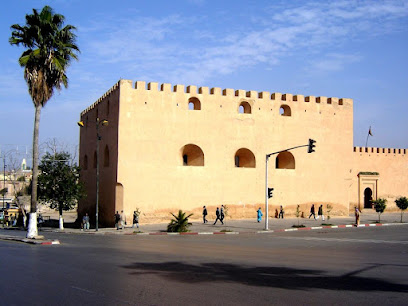
Dar Jamai Museum
Explore the captivating Dar Jamai Museum in Meknes, where Morocco's rich history and vibrant culture come to life through stunning exhibits and art.
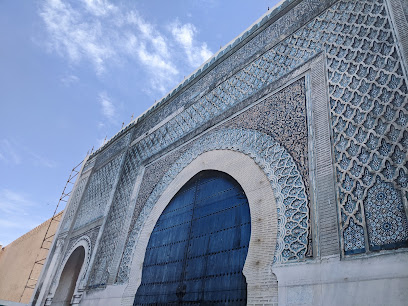
Bab Bou Ameir باب بوعماير
Discover the enchanting Bab Bou Ameir in Meknes, a historical landmark filled with intricate architecture and vibrant local culture, perfect for every traveler.
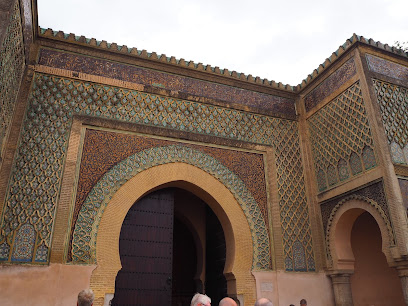
Dar El-Makhzen
Explore the splendid Dar El-Makhzen in Meknes, a monumental testament to Morocco's royal heritage and architectural brilliance.
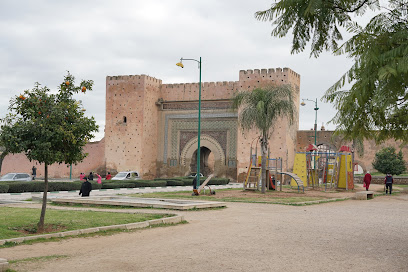
Palais Mansour
Explore Palais Mansour in Meknès, a stunning historical landmark showcasing exquisite Moroccan architecture and rich cultural heritage.
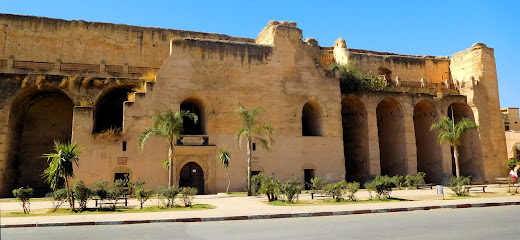
Unmissable attractions to see
Al-Hadeem Square
Discover the vibrant heart of Meknes at Al-Hadeem Square, a historical landmark brimming with culture, architecture, and local charm.
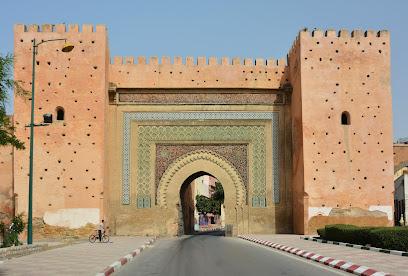
Site Archéologique de Volubilis
Explore the ancient Roman ruins of Volubilis, a UNESCO World Heritage site near Meknès, filled with stunning mosaics and historical significance.
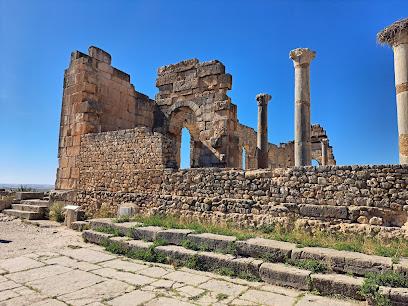
Mausoleum of Moulay Ismail
Discover the Mausoleum of Moulay Ismail, a stunning historical landmark in Meknes, showcasing exquisite Moroccan architecture and rich cultural heritage.
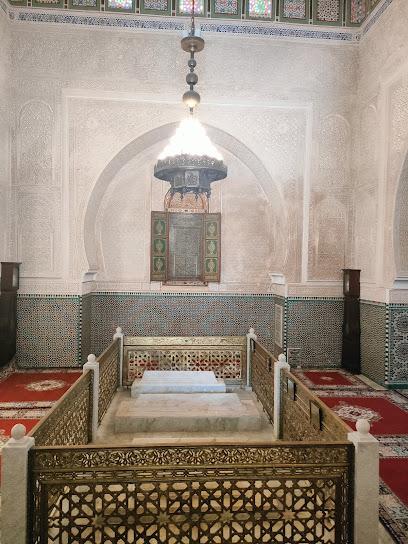
Vichy Thermalia Spa Hôtel Moulay Yacoub Fes
Discover ultimate relaxation at Vichy Thermalia Spa Hôtel Moulay Yacoub, where wellness meets luxury in Morocco's serene landscapes.

Bab el-Khemis
Explore Bab el-Khemis, a historical landmark in Meknes, known for its stunning architecture and vibrant cultural heritage.
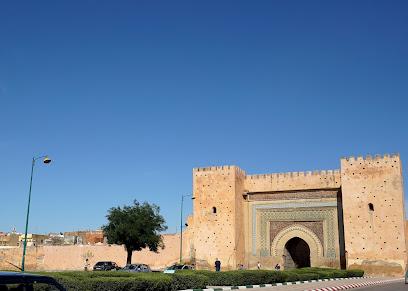
Madrasa Bou Inania
Explore the architectural beauty and historical significance of Madrasa Bou Inania, a key cultural gem in the heart of Meknes, Morocco.
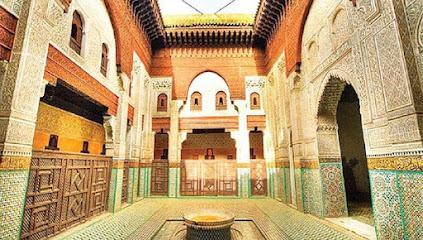
Ifrane National Park
Experience the serene landscapes and rich biodiversity of Ifrane National Park, a hidden gem in Morocco's stunning natural heritage.
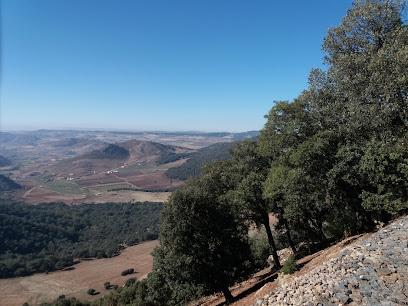
Ain Salama
Experience ultimate relaxation at Ain Salama in Meknes, where thermal baths rejuvenate your body and spirit in a serene Moroccan oasis.
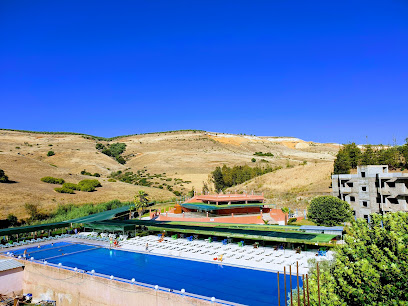
Dar Jamai Museum
Explore the exquisite Dar Jamai Museum in Meknes, a heritage site showcasing Morocco's rich culture and artistry amidst stunning architecture.
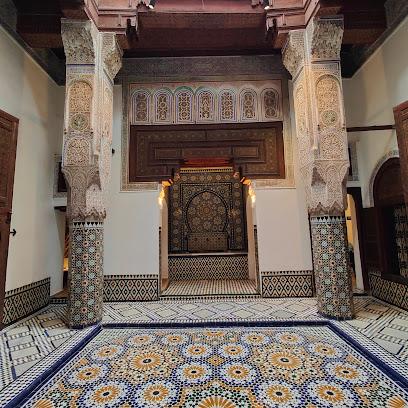
Barrage Sidi Chahed
Explore the serene Barrage Sidi Chahed, a picturesque reservoir in Morocco, perfect for fishing, relaxation, and enjoying nature's beauty.
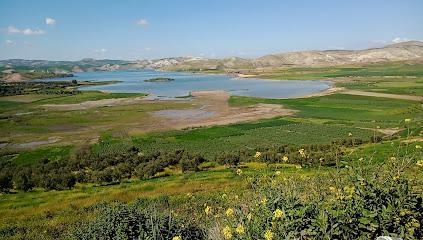
Mausoleum of al-Hadi ben Issa
Discover the serene beauty and historical significance of the Mausoleum of al-Hadi ben Issa in Meknes, a key spiritual site in Moroccan culture.
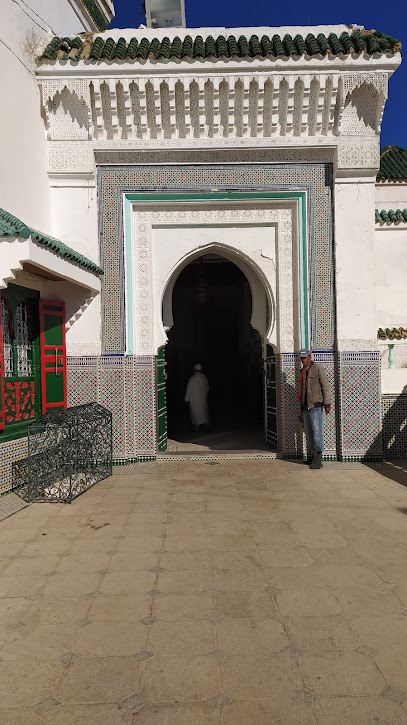
Bab Rmila Natural Park
Experience the beauty and tranquility of Bab Rmila Natural Park, a serene nature preserve in Meknès, perfect for relaxation and exploration.
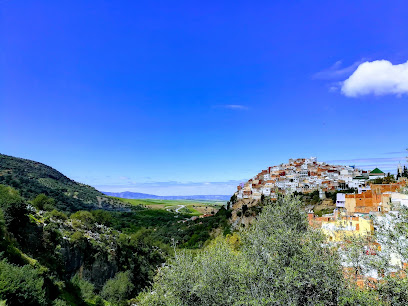
Villa Volubilia
Experience the rich history and exquisite wines of Villa Volubilia, a captivating winery and tourist attraction in Meknes, Morocco.
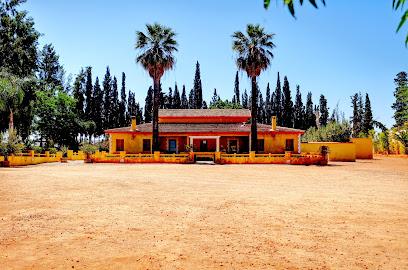
Coco Park
Discover the thrills and delights of Coco Park, Meknès - a family-friendly amusement park offering fun for all ages amidst beautiful Moroccan scenery.
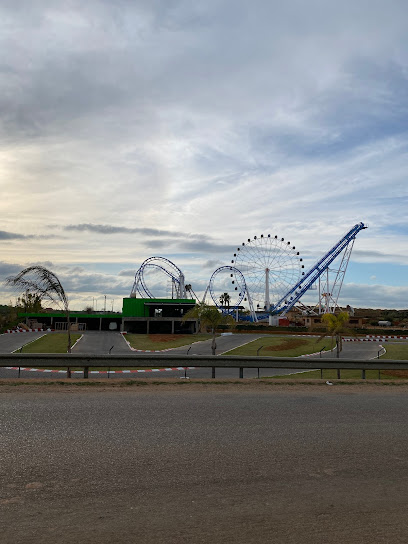
La Grande Terrasse
Experience breathtaking views and authentic Moroccan cuisine at La Grande Terrasse, a must-visit destination in Moulay Idriss Zerhoun.
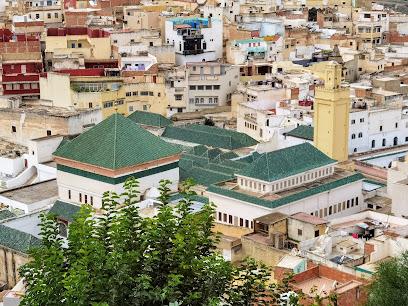
Essential places to dine
Aisha
Discover authentic Moroccan cuisine at Aisha in Meknes—where flavors come alive in every dish.
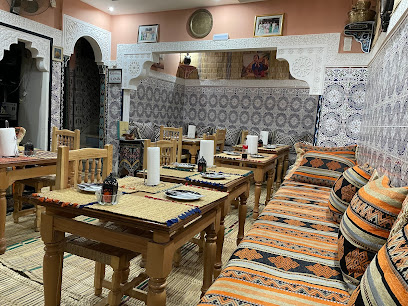
Hiraa
Discover the vibrant flavors of Morocco at Hiraa in Meknes – where tradition meets culinary excellence.
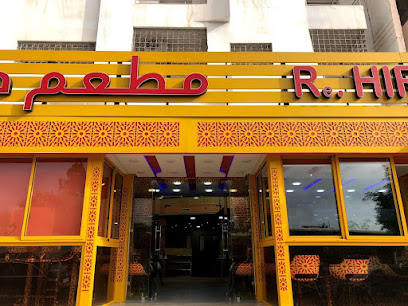
La grillardière
Discover authentic Moroccan grilled cuisine at La Grillardière in Meknes – where flavor meets tradition.
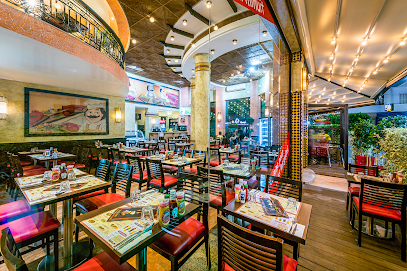
ألوان الزيتون Alwan Zitoun
Experience exquisite seafood dining at Alwan Zitoun in Meknes - where Moroccan flavors meet culinary artistry.
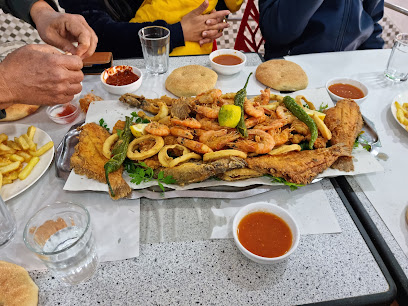
التراب Palais Terrab
Experience authentic Moroccan cuisine at Palais Terrab in Meknès - where tradition meets taste in a vibrant setting.
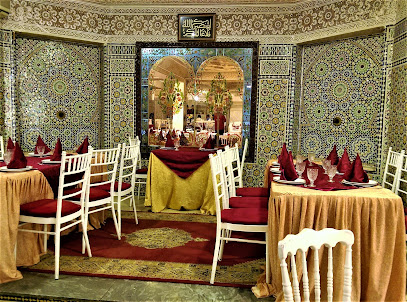
Restaurant Dar Baraka
Experience authentic Moroccan flavors at Restaurant Dar Baraka in Meknes - where tradition meets taste in every dish.
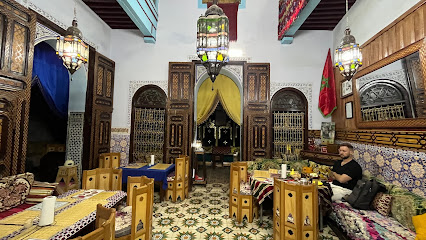
Gout De Meknes
Discover authentic Moroccan cuisine at Gout De Meknes – where tradition meets taste in every dish.
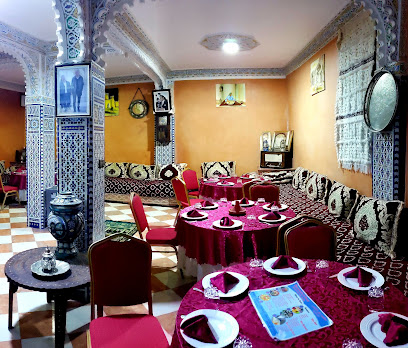
Restaurant Denver
Discover the rich flavors of Morocco at Restaurant Denver in Meknes - where tradition meets taste!
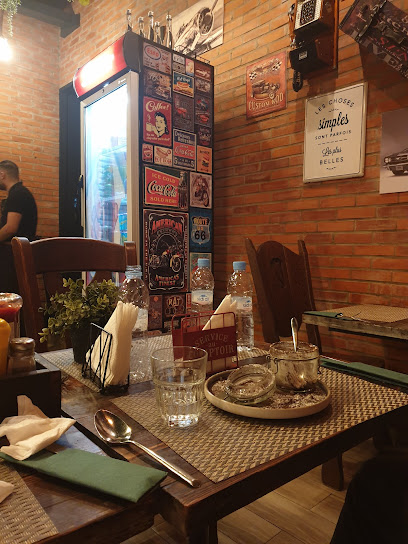
Black Pepper
Experience the vibrant tastes of Morocco at Black Pepper in Meknès, where traditional dishes meet modern culinary artistry.
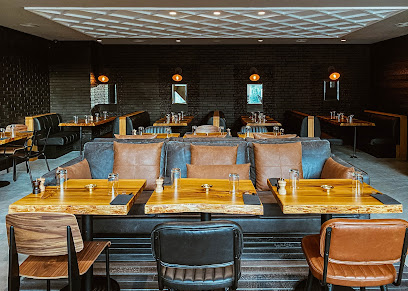
Estrella
Experience authentic Moroccan flavors at Estrella in Meknes—where every meal tells a story.
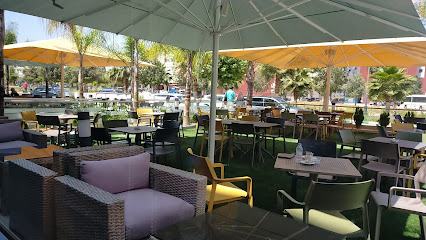
L'AS D-LYS
Discover authentic Moroccan flavors at L'AS D-LYS, where tradition meets modernity in every dish.
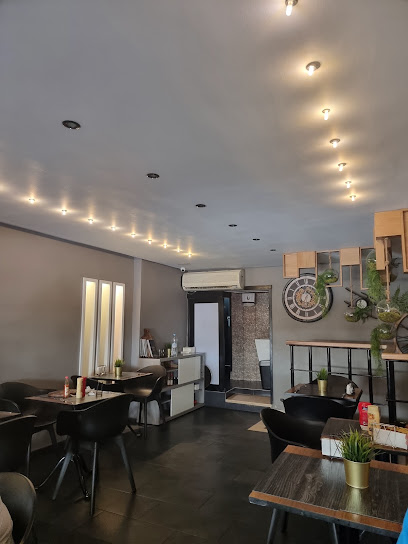
O'london Café Restaurant
Discover the vibrant flavors of Morocco at O'london Café Restaurant in Meknès – where tradition meets taste.
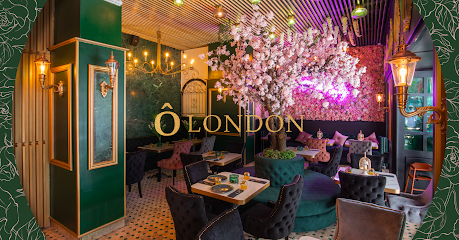
Marhaba
Experience authentic Moroccan cuisine at Marhaba in Meknes – where every meal is a flavorful journey through Morocco's rich culinary traditions.
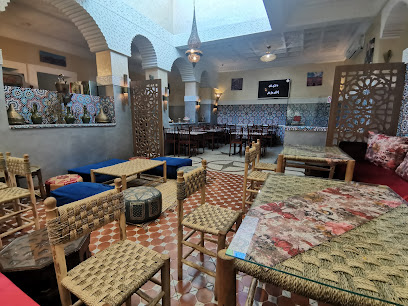
Bab Mansour
Discover authentic Moroccan flavors at Bab Mansour in Meknes – where tradition meets taste in an inviting setting.
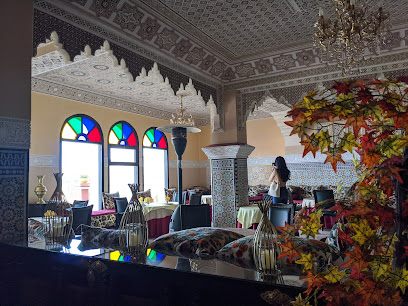
Restaurant Ya Hala
Experience authentic Moroccan dining at Restaurant Ya Hala in Meknes - where every dish tells a story.
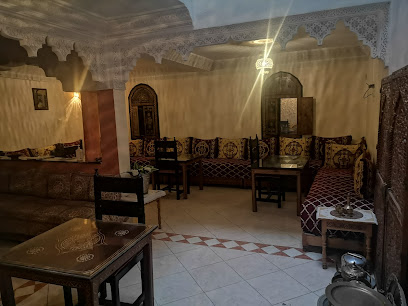
Markets, malls and hidden boutiques
anas accessoires
Explore Anas Accessoires in Meknès, where unique gifts, exquisite costume jewelry, vibrant floral arrangements, and enchanting perfumes await.
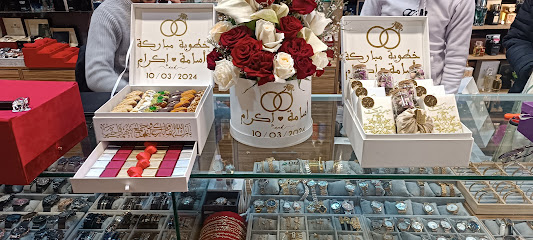
OLGA MEKNES
Discover unique fashion and accessories at OLGA MEKNES, a premier women's clothing store in the vibrant heart of Meknès, Morocco.
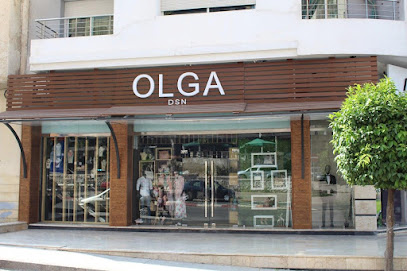
MINISO
Explore trendy fashion accessories at MINISO in Meknes, where style meets affordability in a vibrant shopping atmosphere.
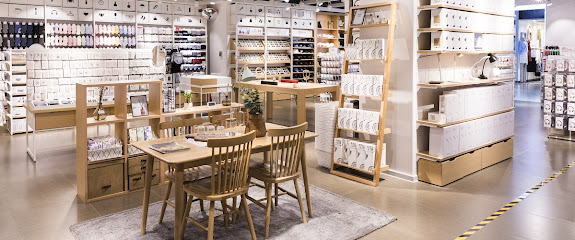
Galerie La Boucle
Explore the chic and diverse selections at Galerie La Boucle, a premier women's clothing store in Meknes, blending Moroccan tradition with modern style.
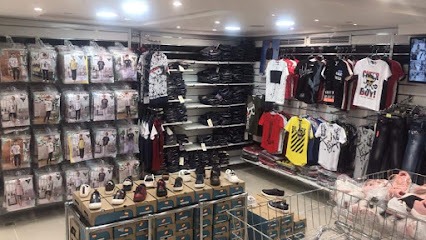
Parfois Meknes Label Gallery
Explore Parfois Meknes Label Gallery for trendy fashion accessories that blend modern design with Moroccan charm in the heart of Meknes.
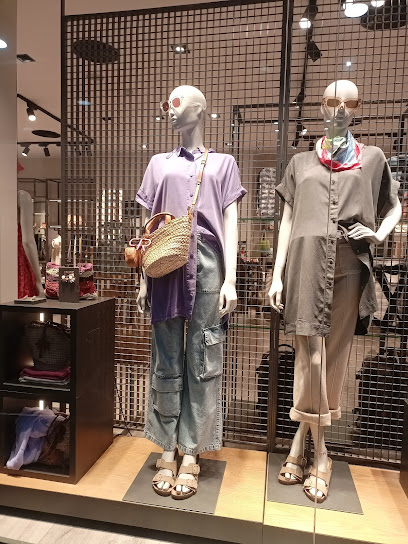
L'art De La Damasquinerie
Discover the exquisite artistry of L'art De La Damasquinerie in the heart of Meknes, where local craftsmanship meets vibrant traditions.
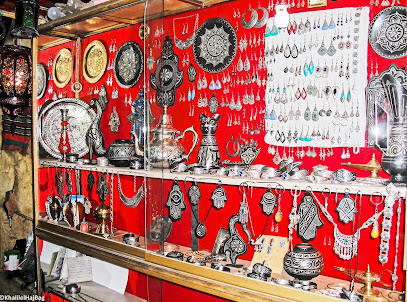
Vintage Store
Explore the unique men's clothing selection at Vintage Store in Meknes, where Moroccan style meets affordability and authenticity.
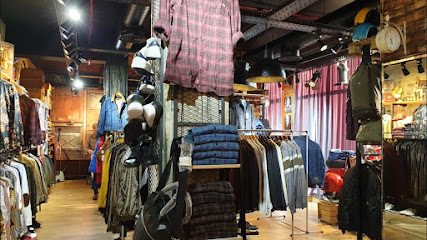
Meknès Shop
Explore unique Moroccan fashion accessories at Meknès Shop, where craftsmanship meets culture in the heart of Meknès.
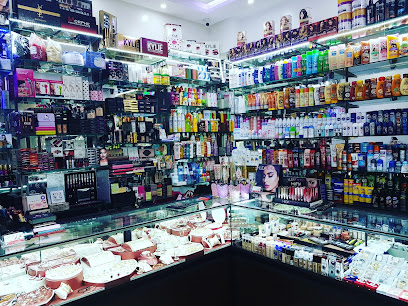
Déco Shop Meknès
Explore unique Moroccan decor at Déco Shop Meknès, where tradition meets artistry in a charming shopping experience.
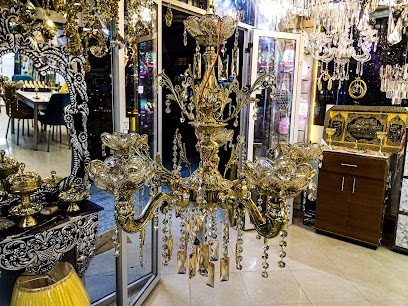
Promod Meknes
Explore the latest trends in women's fashion at Promod Meknes, where style meets affordability in a vibrant shopping atmosphere.

Arwa Shop Meknès
Explore the vibrant world of fashion at Arwa Shop in Meknès, where traditional Moroccan clothing meets contemporary style.
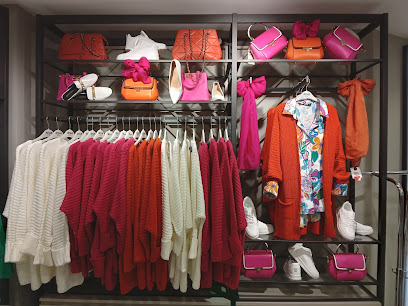
سيدي بوزكري مكناس دروكري مير عبدالإله
Experience the essence of Moroccan culture at Sidi Bouzakri, a must-visit store in Meknès for unique local crafts and modern essentials.
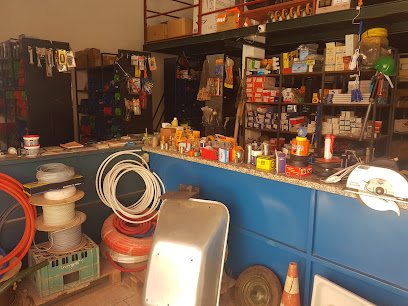
BF store meknes
Explore the trendy BF Store in Meknes for stylish men's clothing that blends contemporary trends with local flair.
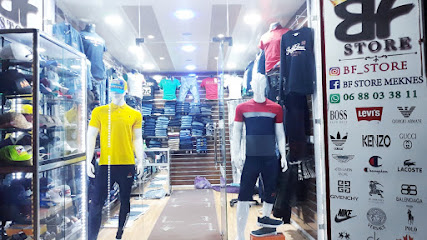
Sami store
Discover the essence of Morocco at Sami Store, where unique gifts and artisanal treasures await in the heart of Meknès.
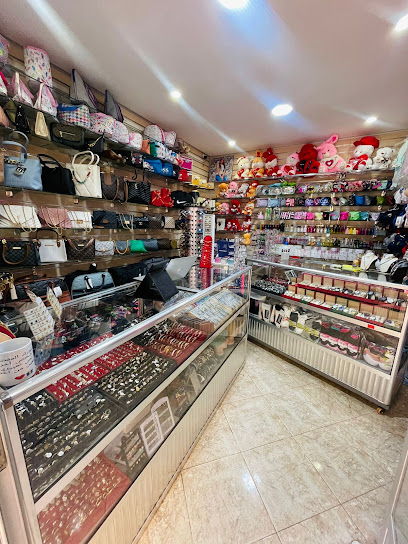
OLY
Explore OLY Gift Shop in Meknes for unique Moroccan gifts and souvenirs that embody the local culture and craftsmanship.
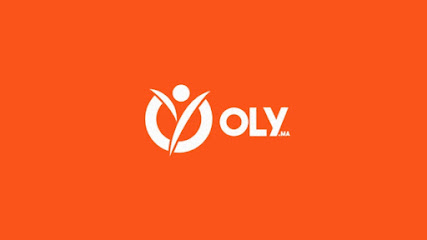
Essential bars & hidden hideouts
The Red Flower
Discover The Red Flower, a cozy lounge in Meknès, where Moroccan hospitality meets a relaxing atmosphere for an unforgettable experience.
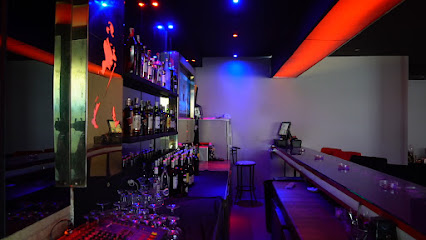
Le Pub
Discover the lively charm of Le Pub in Meknès, a perfect spot to unwind with friends and enjoy local drinks.
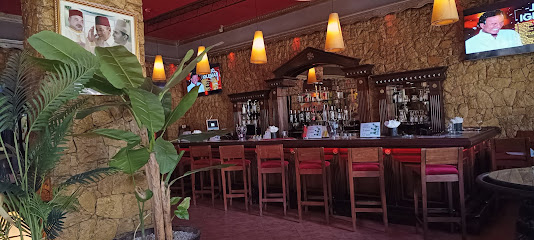
Le Cristal
Experience the vibrant nightlife of Meknes at Le Cristal, your go-to bar and brasserie for local drinks and delicious light bites.
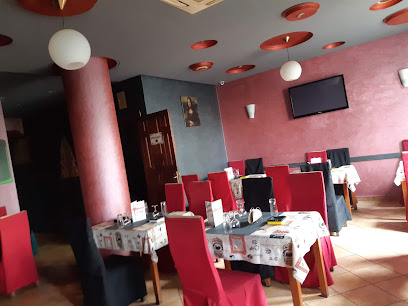
La Coupole - ICI JEUX HIPPIQUES (هنا العاب الخيل)
Experience the vibrant nightlife of Meknes at La Coupole, a bar offering a delightful blend of local flavors and modern entertainment.
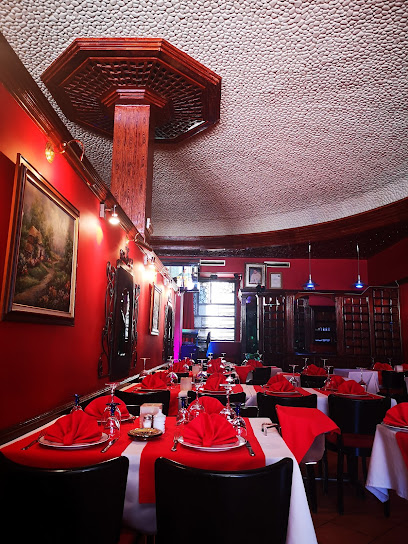
Bar Pegale
Discover the vibrant nightlife at Bar Pegale in Meknes - a lively bar offering local flavors and a welcoming atmosphere for all travelers.
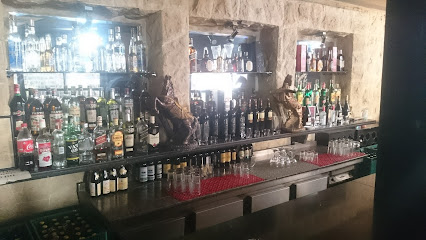
Café BLACK HORSE-ICI JEUX HIPPIQUES
Experience the vibrant culture of Meknes at Café BLACK HORSE-ICI JEUX HIPPIQUES, where local flavors and live music come together in a welcoming atmosphere.
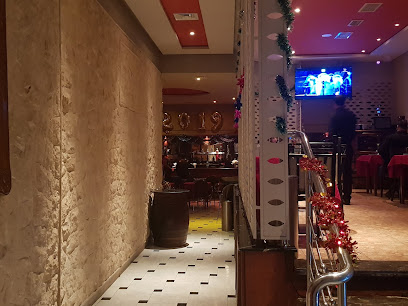
Bar Imad
Experience the vibrant nightlife of Meknes at Bar Imad, where traditional charm meets modern socializing in a perfect blend.
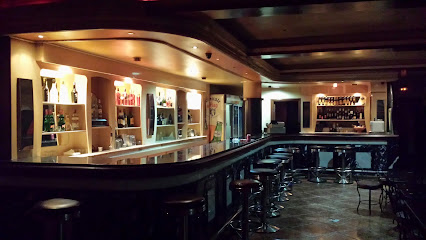
Restaurant L'Univers -ICI JEUX HIPPIQUES
Discover the vibrant dining scene at Restaurant L'Univers in Meknes, where Moroccan cuisine meets a lively bar atmosphere for an unforgettable experience.
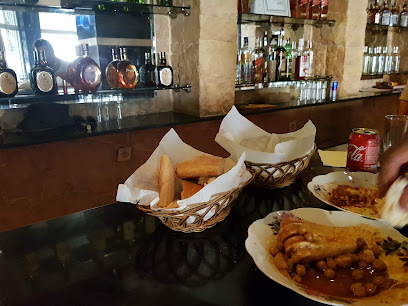
Pasadena
Experience the rich flavors of Moroccan cuisine at Pasadena, a charming grill and café in the heart of Meknès.
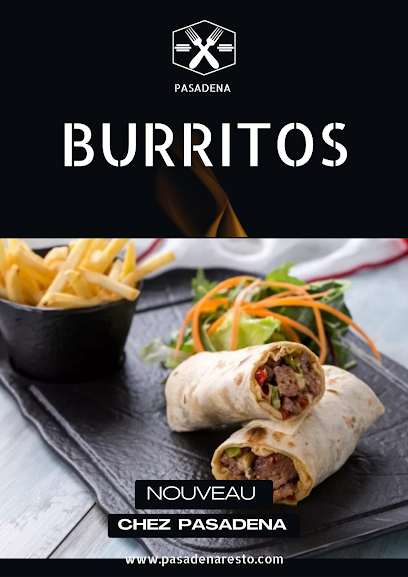
Pizzeria restaurant bar
Experience authentic Italian flavors at the Pizzeria Restaurant Bar in Meknes, where delicious pizzas and a vibrant atmosphere await you.
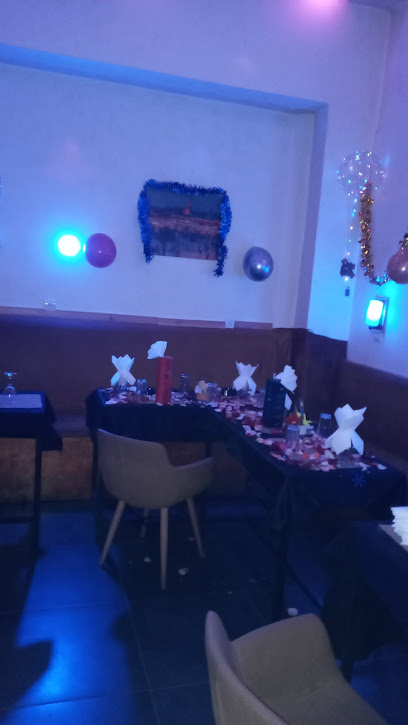
Bar Transatlantique
Discover the enchanting Bar Transatlantique in Meknes, where live piano music and exquisite drinks create the perfect ambiance for a relaxing night out.
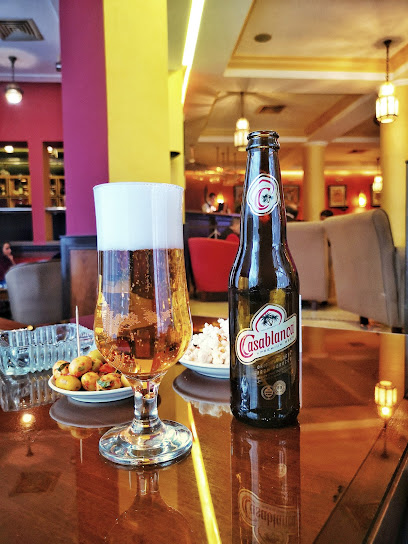
Meknes Pub S.A.R.L
Discover Meknes Pub S.A.R.L, a lively pub offering a fantastic selection of drinks and a vibrant atmosphere, perfect for enjoying local nightlife in Meknes.

Bar Zerhoune
Experience the vibrant atmosphere of Bar Zerhoune in Meknes, where local culture meets relaxation in a cozy setting.
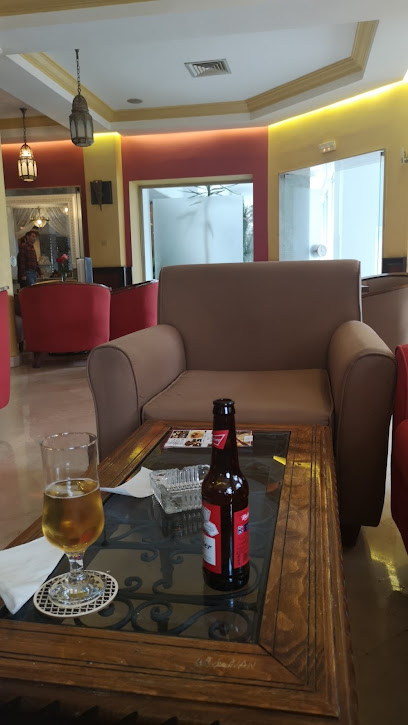
Montana
Discover the vibrant Montana Pub in Meknes, where Moroccan flavors meet a modern pub atmosphere, perfect for unwinding and socializing.

Bar le Dom
Discover the laid-back charm of Bar le Dom in Meknes, where refreshing drinks and a cozy atmosphere await every traveler.

Travel experiences inspired by this city
Explore more travel diariesLocal Phrases
-
- Helloسلام
[salaam] - Goodbyeوداعا
[wada'an] - Yesنعم
[naam] - Noلا
[laa] - Please/You're welcomeمن فضلك
[min fadlik] - Thank youشكرا
[shukran] - Excuse me/Sorryعذرا
[aadhiran] - How are you?كيف حالك؟
[kayfa haluk?] - Fine. And you?بخير. وأنت؟
[bikhair. wa ant?] - Do you speak English?هل تتحدث الإنجليزية؟
[hal tatahadath al'injlizia?] - I don't understandأنا لا أفهم
[ana la afham]
- Helloسلام
-
- I'd like to see the menu, pleaseأود أن أرى القائمة، من فضلك
[awad an araa alqaimah, min fadlik] - I don't eat meatأنا لا آكل اللحوم
[ana la aakul allahum] - Cheers!في صحتك!
[fi sahtak!] - I would like to pay, pleaseأود أن أدفع، من فضلك
[awad an adfae, min fadlik]
- I'd like to see the menu, pleaseأود أن أرى القائمة، من فضلك
-
- Help!النجدة!
[alnajdah!] - Go away!انصرف!
[ansarif!] - Call the Police!اتصل بالشرطة!
[iatisil bilshurta!] - Call a doctor!اتصل بطبيب!
[iatisil batabib!] - I'm lostلقد ضللت الطريق
[lakad dalalt altariq] - I'm illأنا مريض
[ana mareed]
- Help!النجدة!
-
- I'd like to buy...أريد شراء...
[uriid shira...] - I'm just lookingأنا فقط أتفرج
[ana faqat atafarraj] - How much is it?كم الثمن؟
[kam althaman?] - That's too expensiveهذا غالي جدا
[hatha ghali jiddan] - Can you lower the price?هل يمكنك خفض السعر؟
[hal yumkinuk khafd alsaeer?]
- I'd like to buy...أريد شراء...
-
- What time is it?كم الساعة؟
[kam alsaa'ah?] - It's one o'clockالساعة الواحدة
[alsaa'ah alwahidah] - Half past (10)العاشرة والنصف
[alashirah walnisf] - Morningالصباح
[alsabah] - Afternoonالظهيرة
[alzuhurah] - Eveningالمساء
[almasa] - Yesterdayأمس
[ams] - Todayاليوم
[alyawm] - Tomorrowغدا
[ghadan] - 1واحد
[wahid] - 2اثنان
[ithnan] - 3ثلاثة
[thalatha] - 4أربعة
[arbaa] - 5خمسة
[khamsah] - 6ستة
[sittah] - 7سبعة
[sabaa] - 8ثمانية
[thamania] - 9تسعة
[tasia] - 10عشرة
[ashara]
- What time is it?كم الساعة؟
-
- Where's a/the...?أين ...؟
[ayn ...?] - What's the address?ما هو العنوان؟
[ma huwa alunwan?] - Can you show me (on the map)?هل يمكنك أن تريني (على الخريطة)؟
[hal yumkinuk an tarini (ala alkhareetah)?] - When's the next (bus)?متى يأتي الحافلة التالية؟
[mata yaati alhafilah altaliyah?] - A ticket (to ....)تذكرة (إلى ...)
[tadhkirah (ila ...)]
- Where's a/the...?أين ...؟
History of Meknes
-
Meknes, originally founded in the 10th century by the Almoravids as a military settlement, quickly grew in importance due to its strategic location. It was named after the Miknasa, a Berber tribe that dominated the region during that period.
-
During the 12th and 13th centuries, Meknes flourished under the rule of the Almohad and Marinid dynasties. The city saw the construction of grand mosques, madrasas, and palaces as it became a cultural and religious hub in Morocco.
-
Meknes reached its zenith in the late 17th and early 18th centuries under Sultan Moulay Ismail, who declared it the capital of Morocco. He embarked on an ambitious building campaign, constructing monumental gates, elaborate palaces, and extensive fortifications, including the famous Bab Mansour gate.
-
Sultan Moulay Ismail's vision transformed Meknes into a city of architectural splendor, featuring the Heri es-Souani granaries, the Dar El Makhzen royal palace, and the sprawling Agdal Basin. His reign left a lasting imprint on the city’s urban landscape.
-
Following the death of Sultan Moulay Ismail, Meknes experienced a period of decline. However, the city witnessed a revival in the 19th century as the Alaouite dynasty undertook restoration projects, preserving its historical monuments and heritage.
-
During the French Protectorate from 1912 to 1956, Meknes underwent significant modernization. The French administration developed new infrastructure, blending traditional Moroccan and European architectural styles, which can still be seen in the Ville Nouvelle (New Town) area.
-
In 1996, the historic city of Meknes was designated as a UNESCO World Heritage Site. This recognition highlighted its exceptional examples of Islamic architecture and urban planning, ensuring the preservation of its cultural and historical patrimony for future generations.
-
Meknes remains a vibrant cultural center in Morocco, hosting numerous festivals and events such as the Moussem of Moulay Idriss Zerhoun and the International Festival of Mediterranean Cinema. These celebrations reflect the city's rich traditions and diverse heritage.
Meknes Essentials
-
Meknes, located in northern Morocco, is accessible by various means of transportation. The nearest major airport is Fès-Saïs Airport, approximately 70 kilometers away. From the airport, you can take a taxi or a shuttle to Meknes, which typically takes around 1 hour. Alternatively, you can take a train from major cities such as Casablanca, Rabat, and Fès directly to Meknes. The train journey from Fès takes about 45 minutes, while from Casablanca, it takes around 3 hours.
-
Meknes is well-served by public transportation, including buses and taxis. Petit taxis are convenient for short trips within the city, while grand taxis can take you to nearby towns and cities. Buses are also an affordable option for getting around the city. For a more personalized experience, you can rent a car, but be prepared for local driving conditions. Walking is a great way to explore the medina and its narrow streets.
-
The official currency in Morocco is the Moroccan Dirham (MAD). Credit cards are widely accepted in hotels, restaurants, and larger shops, but it is advisable to carry cash for smaller establishments and markets. ATMs are readily available throughout Meknes. It's a good idea to exchange some money at the airport or in major cities before arriving in Meknes.
-
Meknes is generally a safe city for tourists, but it's important to take standard precautions. Avoid walking alone at night in unfamiliar areas and be cautious of pickpockets in crowded places, particularly in the medina. Areas with higher crime rates targeting tourists include the Bab el-Mansour area and the busy markets. Always be aware of your surroundings and keep your belongings secure.
-
In case of emergency, dial 19 for police assistance or 15 for medical emergencies. The local hospital, Hôpital Mohammed V, is equipped to handle medical emergencies. Pharmacies are widely available for minor health issues. It's recommended to have travel insurance that covers medical emergencies. Always carry a copy of your passport and emergency contact numbers.
-
Fashion: Do dress modestly, especially when visiting religious sites. Men should avoid wearing shorts, and women should cover their shoulders and knees. Religion: Do respect local customs and traditions. Always remove your shoes before entering a mosque. Public Transport: Do be courteous and give up your seat to elderly passengers. Don't eat or drink on public transport. Greetings: Do greet people with a polite 'Salam Alaykum' (peace be upon you). Handshakes are common, but always use your right hand. Eating & Drinking: Do try local delicacies and accept food offerings graciously. Don't refuse hospitality, as it is considered impolite.
-
To experience Meknes like a local, visit the bustling medina and explore its souks where you can buy traditional Moroccan goods. Engage with locals; they are often friendly and willing to share stories about the city's history and culture. Don't miss visiting the historical sites such as Bab el-Mansour, the Mausoleum of Moulay Ismail, and the Royal Stables. For a unique experience, visit the Heri es-Souani granaries and take a stroll around the Agdal Basin.
Trending Landmark in Meknes
Nearby Cities to Meknes
-
Things To Do in Fes
-
Things To Do in Chefchaouen
-
Things To Do in Asilah
-
Things To Do in Tetouan
-
Things To Do in Casablanca
-
Things To Do in Tangier
-
Things To Do in Europa Point
-
Things To Do in Gorham's Cave Complex
-
Things To Do in St. Michael's Cave
-
Things To Do in Alameda Botanic Gardens
-
Things To Do in Queensway Quay Marina
-
Things To Do in Catalan Bay
-
Things To Do in Main Street
-
Things To Do in Gibraltar
-
Things To Do in Moorish Castle

























